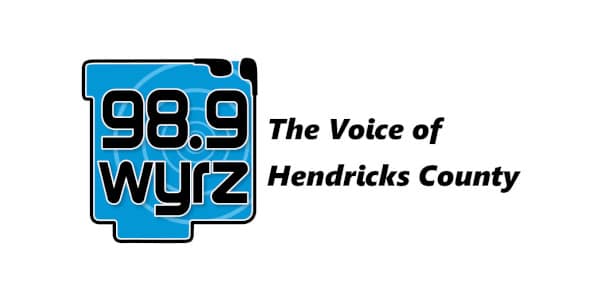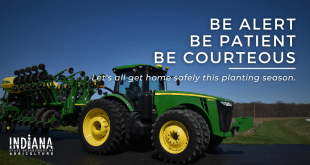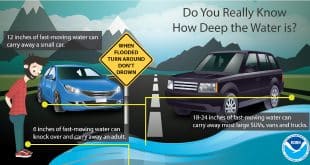Indianapolis, IN – Oct. 1, 2015 – Winter storms often wreak havoc on a home. Frozen pipes can burst. Snow buildup can damage a roof. Moisture and mold may penetrate walls through exterior cracks. And fires can be started by woodstoves, cracked chimneys, candles or space heaters.
“There are many potential home-related dangers during the winter months but preventative measures can help people be adequately prepared,” said Greg Seiter, public affairs manager for AAA Hoosier Motor Club.
Start with the basics Clear gutters and downspouts of debris to allow melting snow and ice to flow freely. To help prevent ice dams from forming, keep the attic well-ventilated and the attic floor well-insulated.
Inspect the roof for damaged shingles or tiles, and have them replaced. Check the chimney base and repair cracks to prevent water from leaking in.
Yards should be inspected for dead tree branches and overhanging limbs. If any are present, they should be removed. Falling trees or limbs laden with snow can cause serious damage to a roof and other areas too, including sheds, outbuildings and vehicles.
To prevent pipes from bursting, exposed pipes should be insulated and cracks in outside walls near pipes should be sealed. During extremely cold temperatures, cabinet doors on exterior walls should be opened (to allow warmer air to reach the pipes), and faucets should be turned on enough to allow a slow trickle of water to flow through unprotected pipes.
Keep fire safety in mind Chimneys should be professionally inspected, cleaned and repaired before winter use. Appointments should be scheduled as early in the season as possible as chimney cleaners are often in high demand when temperatures begin to tumble.
Homeowners should ensure that smoke and carbon monoxide detectors are fully functional and batteries are fresh. A fire extinguisher should always be handy, especially for those planning to build fires in a fireplace or wood stove.
Burning fires and candles should never be left unattended, and candles should be placed away from drapes, tablecloths and other items that could easily catch on fire.
Extreme caution should be used when positioning space heaters so that flammable materials aren’t anywhere near by.
Stock up on emergency items
- Flashlights
- A portable radio with extra batteries
- Necessary medications
- At least three days of water and canned food for family and pets
- A can opener
- First-aid supplies
- Heating fuel
- A lighter and/or generous supply of matches stored in a sealed, plastic bag.
When the storm comes Bent attic rafters or internal doors that jam may be signs that too much ice and snow has accumulated on the roof. When those signs are evident, homeowners should consider having snow removed in order to avoid potential roof collapse.
Don’t forget insurance For more information on auto, homeowners and other personal lines of insurance, contact your AAA agent, your local AAA office or visit AAA online.






